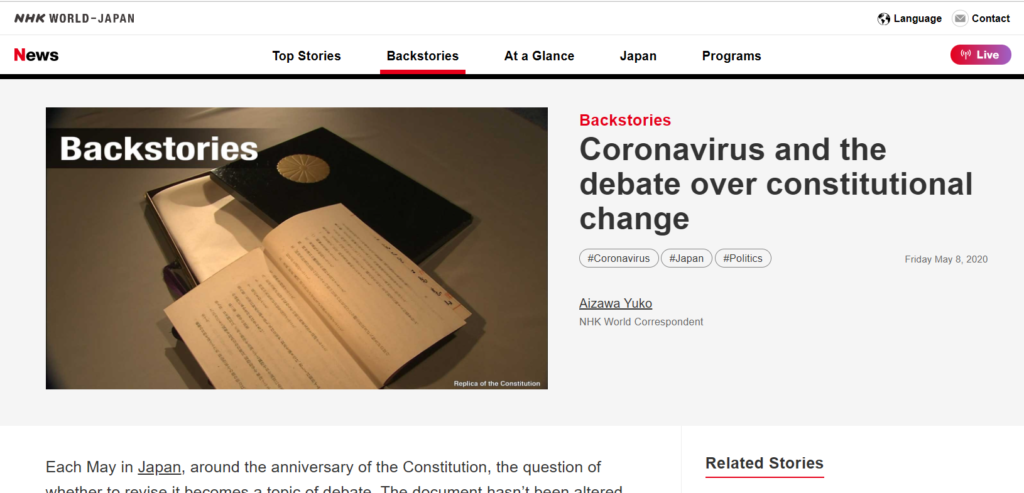Nihon Hoso Kyokai (Japan Public Broadcasting, or NHK) is a statutory corporation governed by its constituting legislation. Its stated goals include “rich and high quality programming” for public welfare. In the current political climate, its programming has been subjected to a variety of criticisms both from the ruling conservative coalition and its supporters and, lately, from the opposition. Its news program tends to repeat government pronouncements without any comment, even though government polices are not “neutral”, and may easily become a tool for propagating mainstream views. It is a highly difficult task to ensure “neutrality” in this environment, as NHK is subject to the administration’s and the Diet’s control on management and finance.

NHK’s revenues are based on broadcasting “subscriptions” which all television set owners are obligated to complete. In the latest unpublished case, the Supreme Court faced a dispute where the plaintiff disabled the television set to watch NHK. The lower court held that even it was still physically possible to enable the set for NHK broadcasting and, therefore, the plaintiff was under the obligation to subscribe. The Supreme Court upheld the decision.
This argument runs counter to common sense. By this logic, you remain a set owner even after you smashed the device, as it is always possible to repair. One would marvel at the intensity of the logic and wonder where it comes from. Indeed, to justify the rationale, the court copied and pasted at length the standard public policy argument for the need of having an independent, nationwide broadcaster, which is the subject of challenges as discussed above.
Well, rather than making a superficial case, why don’t we rethink the rationale for NHK, as a tax collector (with programs being frills). Taxation is a genuine public policy under the Japanese constitution and there should not be any objection. Moreover, there will be less complaints of neutrality since the programs are just frills which are, by definition, not something to count on.